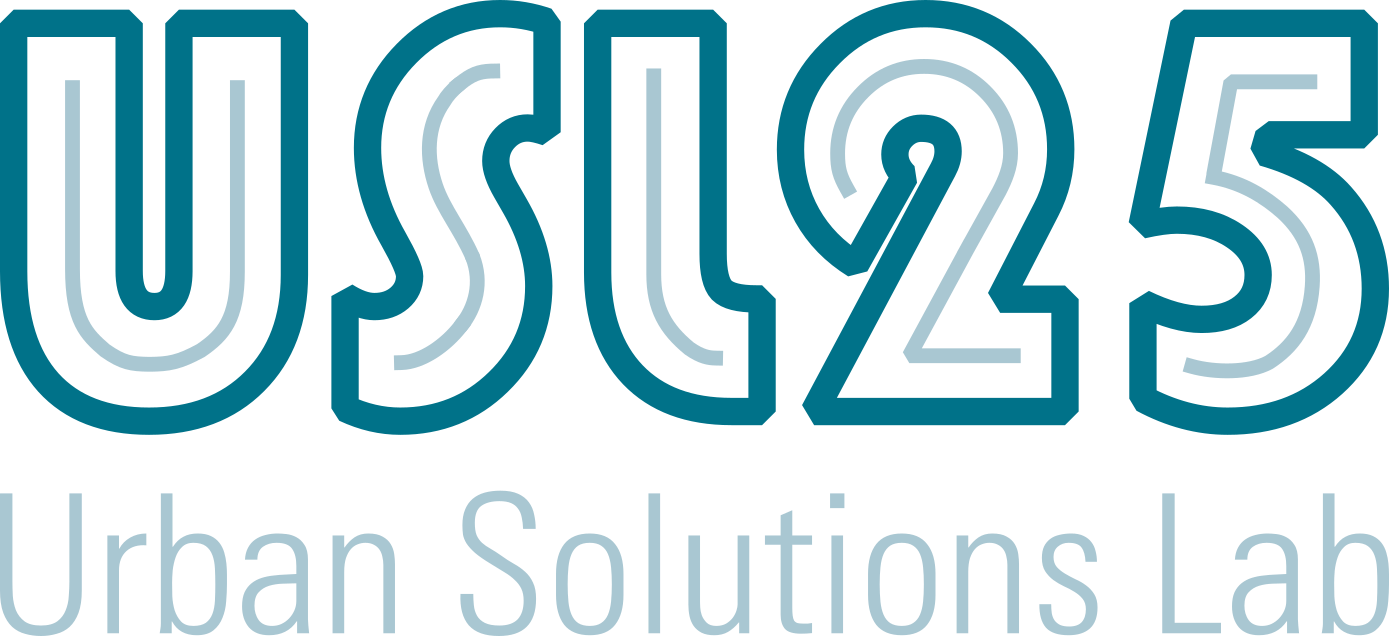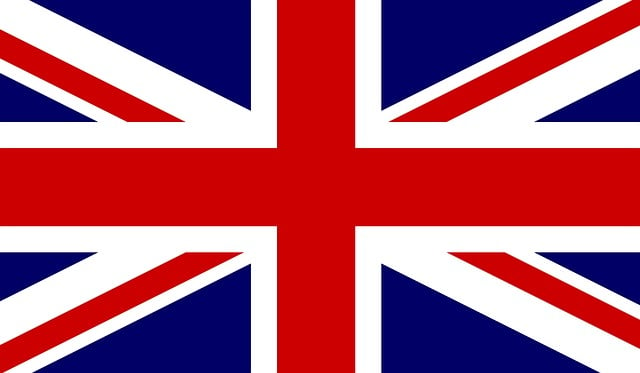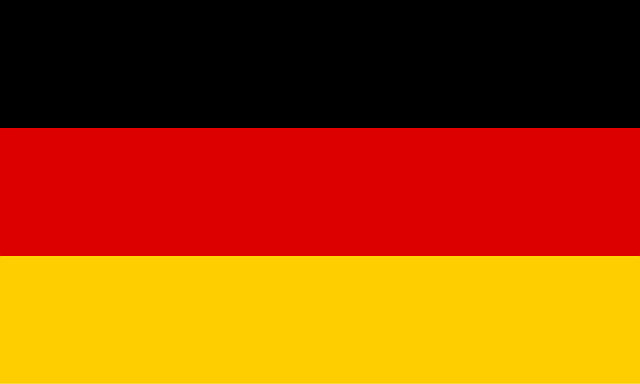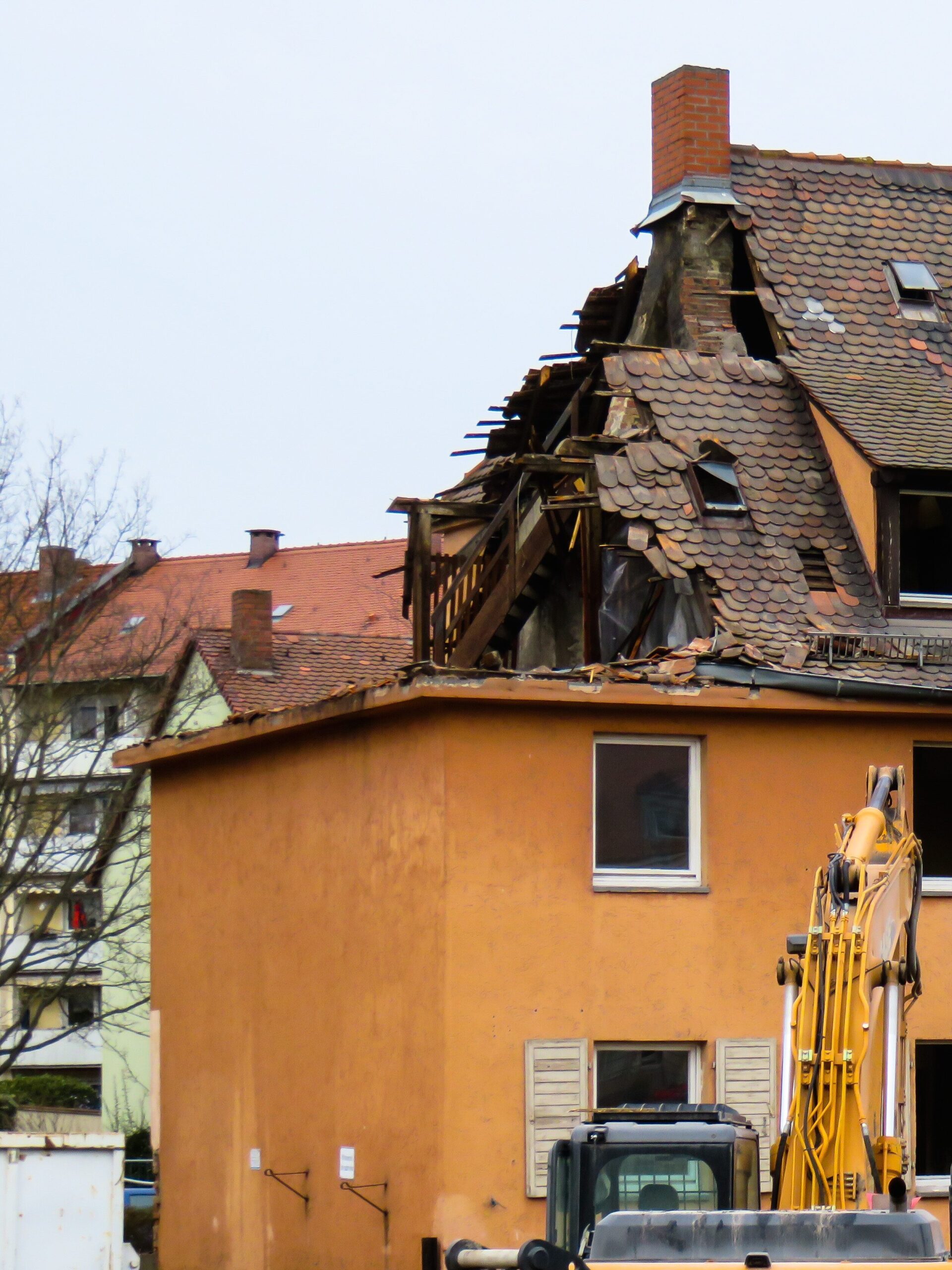Ideas for the city of tomorrow!
Cities are facing numerous challenges –in the Urban Solutions Lab we want to create solutions. The innovative, hackathon style concept of the Institute of Work and Technology of the Westphalian University of Applied Sciences Gelsenkirchen connects students of various disciplines from different universities to work together and shape the city of tomorrow (no prior IT knowledge required).
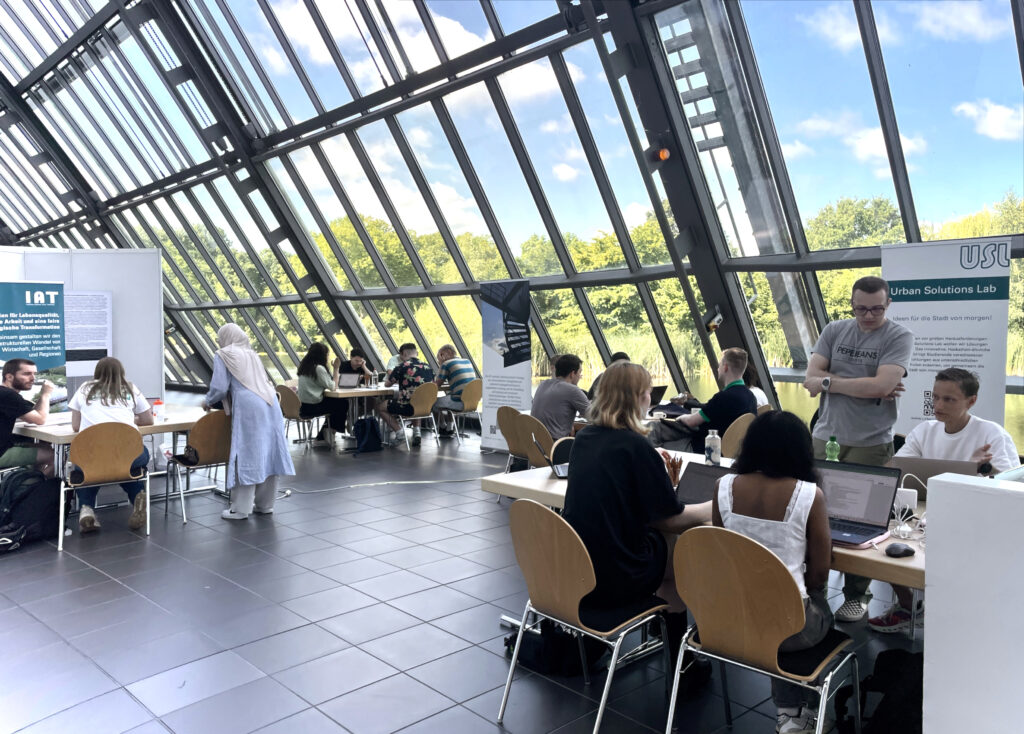
This year’s focus: Gelsenkirchen!
On June 27, 2025, representatives from local government, administration, business and civil society introduced four current „challenges“ around sustainable urban development. Afterwards interdisciplinary teams of students from three universities in the Ruhr region worked on innovative solutions on June 27 & 28, 2025 at the Science Park Gelsenkirchen.
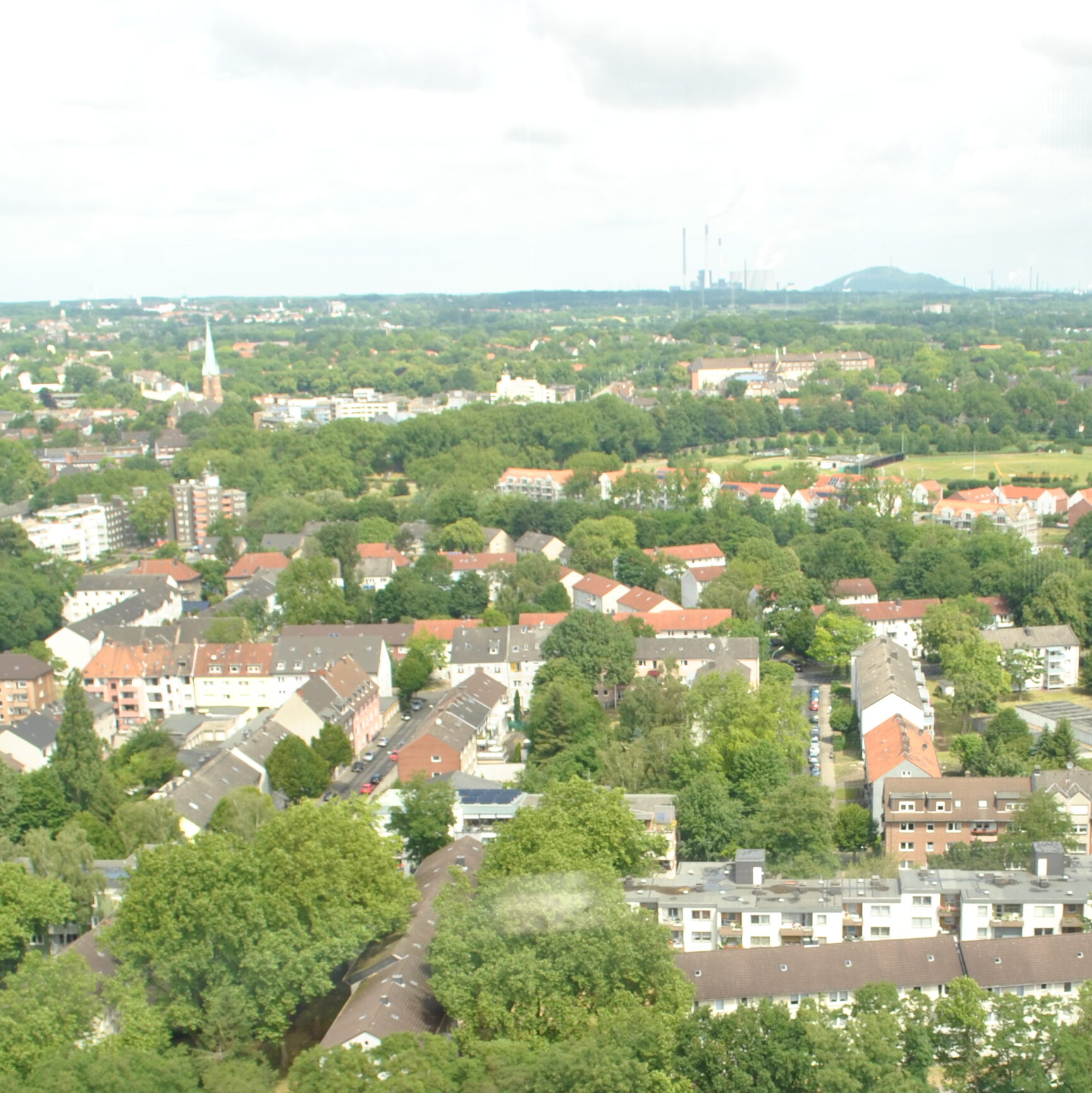
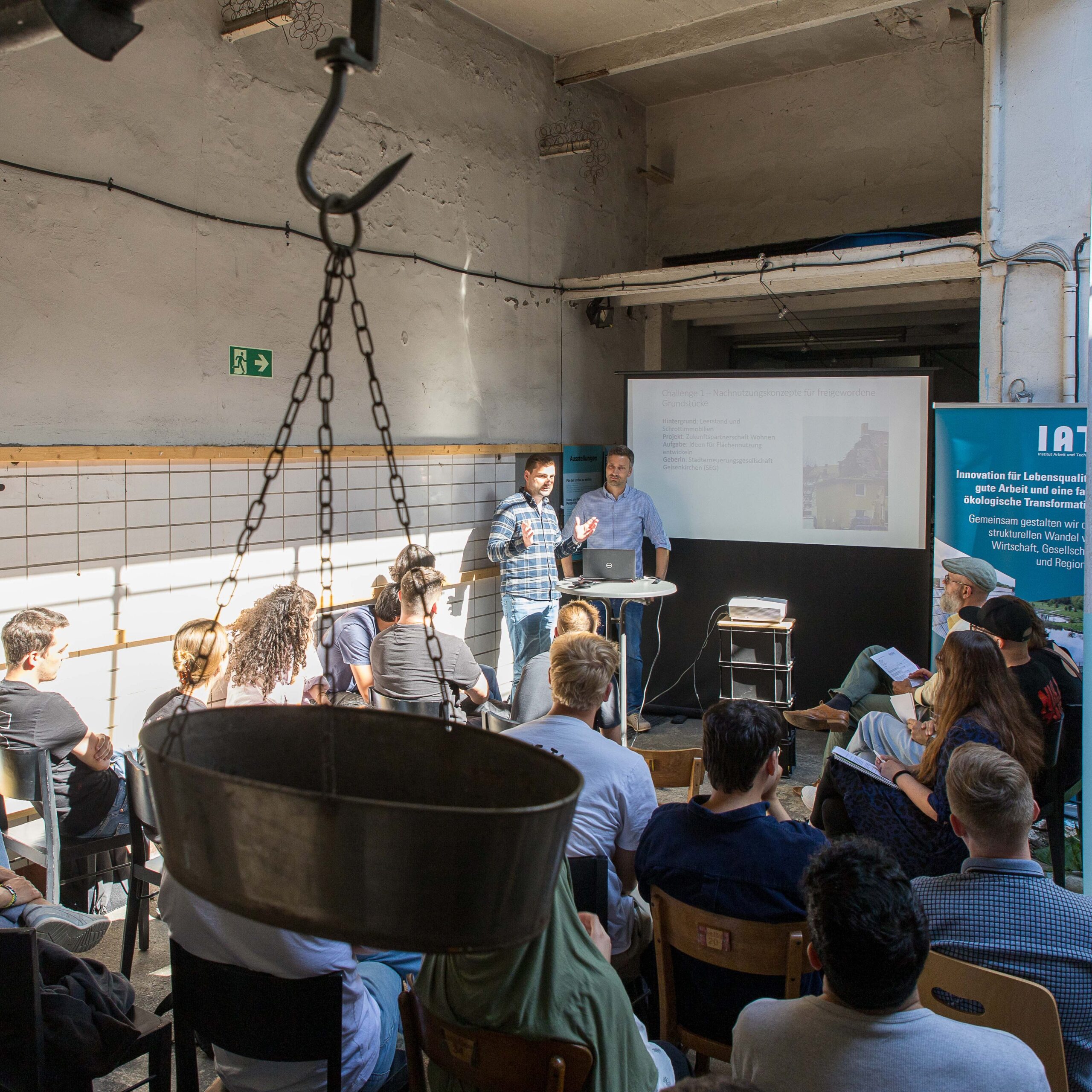
The Results!
The four teams each presented an 8-minute pitch of their ideas at the public final event on July 3, 2025, at the UmBauLabor in Gelsenkirchen.
After an intensive discussion, the jury, consisting of:
- Kirsten Lipka from gelsenmylove,
- Steffen Hampe, freelance photographer from Gelsenkirchen,
- Katrin Stolz from the Center for Higher Education Didactics at TU Dortmund University, and
- Stefan Gärtner, Executive Director of the Institute for Work and Technology at the Westphalian University of Applied Sciences in Gelsenkirchen,
awarded first place to the solution “Platz da!” – a long-term reuse concept for vacant urban plots.
Thank you!
We sincerely thank everyone who made the first edition of the Urban Solutions Lab possible and supported the process:
- our challenge providers – Stadterneuerungsgesellschaft Gelsenkirchen (SEG), Insane Urban Cowboys e.V. (IUC), the City of Gelsenkirchen, and PublicJazz Events,
- our participants from four seminars at three Ruhr region universities, who invested time and creativity into teamwork and solution development,
- our jury,
- our hosts from UmBauLabor and the Science Park Gelsenkirchen,
- our sponsor Gelsen-Net,
- the Ecosys4you project for its inspiration,
- and the entire IAT team: Dr. Anna Butzin, Dr. Franz Flögel, Kerstin Meyer, Maria Rabadjieva, Dr. Judith Terstriep, Benedikt Pühmeyer, Mona Peifer, and Marvin Mosters.
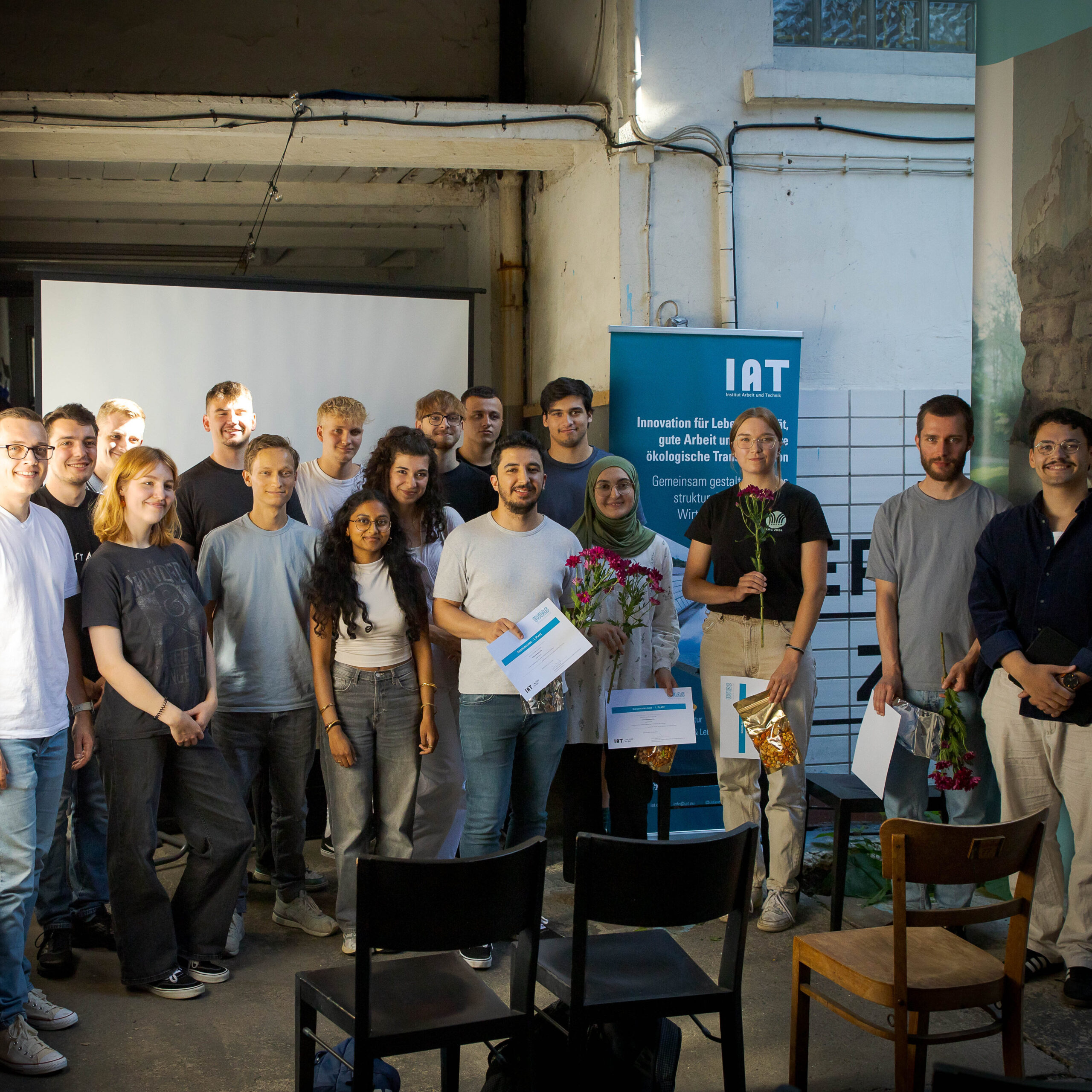
Challenges
For USL25, the following challenges have been submitted by local stakeholders from Gelsenkirchen:
Challenge 1: New Uses for Vacant Urban Space
Background Due to population decline and increasing vacancy rates, many buildings in Gelsenkirchen are in poor structural condition. Particularly in the southern part of the city, the number of so-called "problem properties" is very high—estimated at around 500 to 600. In response, the City of Gelsenkirchen and the Ministry for Home Affairs, Local Government, Building, and Digitalization launched the project “Future Partnership for Housing” in 2023. The goal is to purchase and demolish these derelict properties and create space for new urban development ideas. Questions What opportunities arise when previously built-up land is cleared? What kinds of topics or priorities could be better addressed in urban and neighborhood development as a result? What specific types of projects could be realized on these newly available sites? And how should the local community and neighbors be involved in the process? Your Task Develop creative ideas or concepts for how these centrally located vacant plots could be used in the future—including a proposed process for implementation. Challenge Provider Urban Renewal Corporation Gelsenkirchen (SEG)
Challenge 2: Making “Kommse Ücken?!” Financially Sustainable
Background
Bochumer Straße is on its way to becoming the nightlife district in Gelsenkirchen—and “Kommse Ücken?!” (KÜ) is at the heart of that vision. Since 2022, this quarterly event night has brought life to the creative neighborhood of Ückendorf. Participating venues go all out with special programs: a local pub might host live music or a theater performance, a DJ could spin tracks outside a Greek fast-food joint, or a vacant supermarket might transform into a techno rave. The vibe is raw, subcultural, and authentic—not your typical mainstream scene. The entry is free everywhere, and visitors can easily move from one location to the next. While the project has received various forms of public funding so far, the long-term dream is for KÜ to become self-sustaining—or even obsolete, because Bochumer Straße naturally becomes this vibrant every weekend on its own.
Questions
How can “Kommse Ücken?!” become financially sustainable?
What would motivate local venues to invest in the program?
Your Task
Develop a concept that outlines how Kommse Ücken?! could support itself financially in the long run.
Challenge Provider
Insane Urban Cowboys e.V. (IUC))
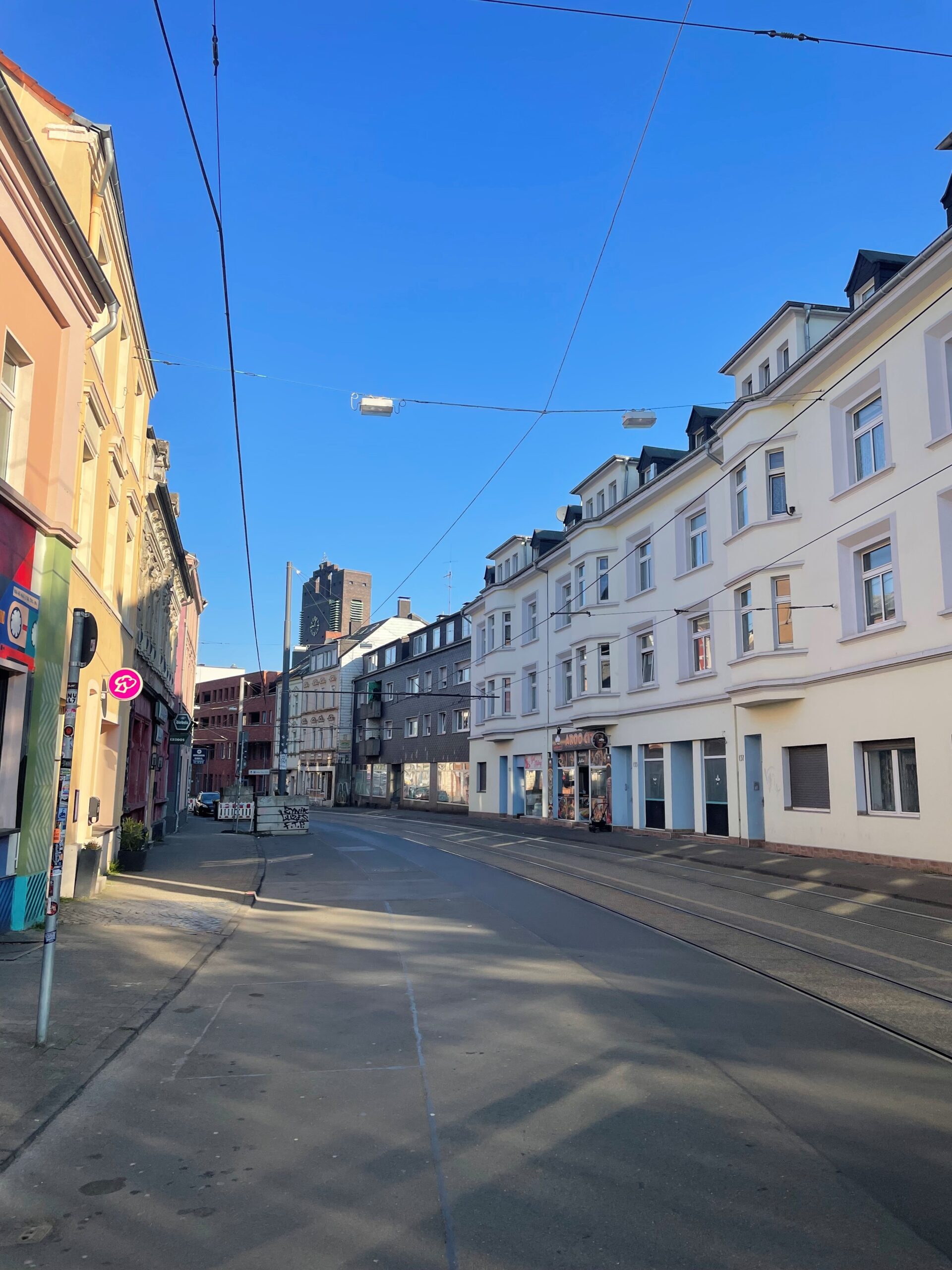

Challenge 3: Development prospects for the churches at Pestalozzihain
Background The Ückendorf district of Gelsenkirchen is the focus of urban renewal, particularly around Ückendorfer Strasse. The aim is to remedy deficits in the cityscape, usage, social structure, real estate and urban climate. The upgrading of Bochumer Strasse through redevelopment, demolition and conversion with public and private support serves as a model. The central green area of 1.1 hectares, Pestalozzihain, is used for a Christmas market, among other things, and contains a playground in need of renovation. It is framed by two listed churches - the Protestant Nicolai Church to the north and the Catholic St. Josef Church to the south. To the west is the listed Dickebank seam settlement.
The Challange
Examination of the future use and design of the ensemble against the backdrop of scarce financial resources, monument protection and various owners.
Your Task
Development of economically and architecturally viable concepts for the future of the two church buildings, including Pestalozzi Grove.
Challenge provider City of Gelsenkirchen
Challenge 4: Jazz as a cultural offer for young people and urban development
Background
Jazz as a musical genre is barely present in the public media, especially in smaller towns like Gelsenkirchen. While jazz finds a young audience in major cities, there is almost no interest in Gelsenkirchen. Universities such as the Westfälische Hochschule are inadequately networked with the city’s cultural offerings, making it difficult for students to access them. Current measures such as networking and social media have had little effect so far.
The Challenge
How can jazz be made attractive to young people in a city like Gelsenkirchen?
Your Task
Develop a concept that makes jazz accessible to young people as a cultural offer and at the same time contributes to the attractiveness of the city for young people.
Challenge provider
PublicJazz events
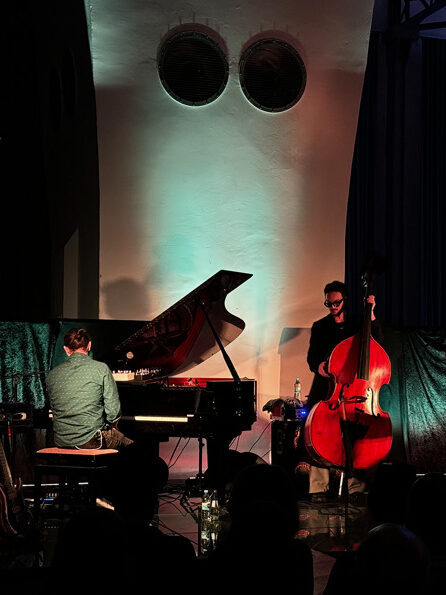
Schedule and venues
| Date | Time | Venue |
| 27.06.2025 | 15:00-19:00 | Wissenschaftspark Gelsenkirchen, Mundscheidstr. 14, Gelsenkirchen |
| 28.06.2025 | 10:00-18:00 | Wissenschaftspark Gelsenkirchen, Mundscheidstr. 14, Gelsenkirchen |
| 03.07.2025 | 16:00-18:00 | Umbaulabor, Bergmannstraße 23, Gelsenkirchen |
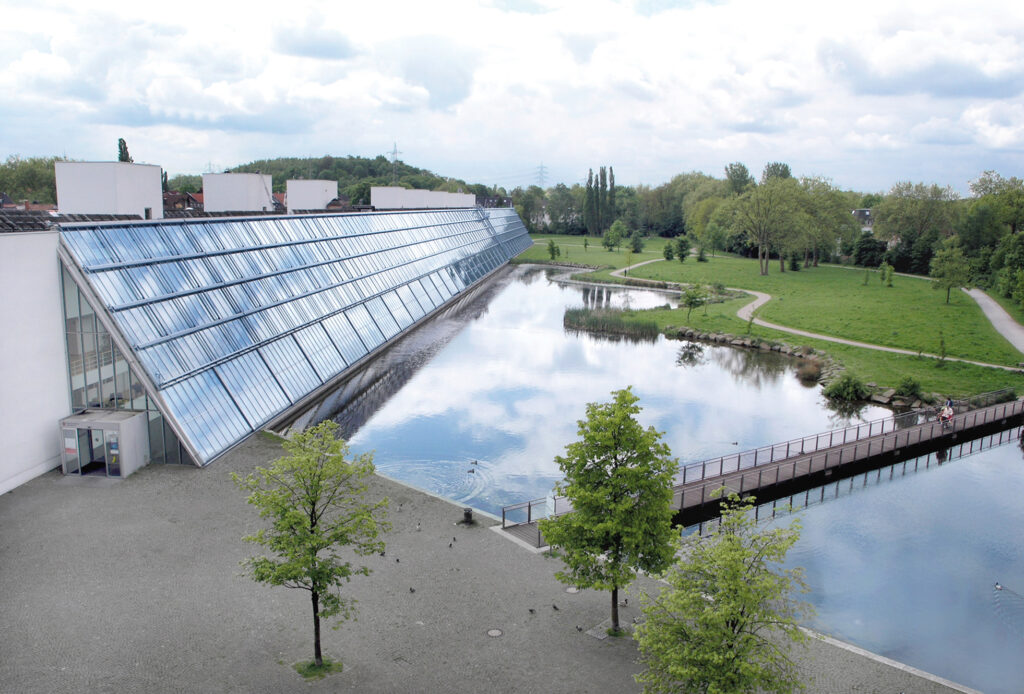
Stay connected and don’t miss any updates about USL26!
Sign up for our newsletter.
